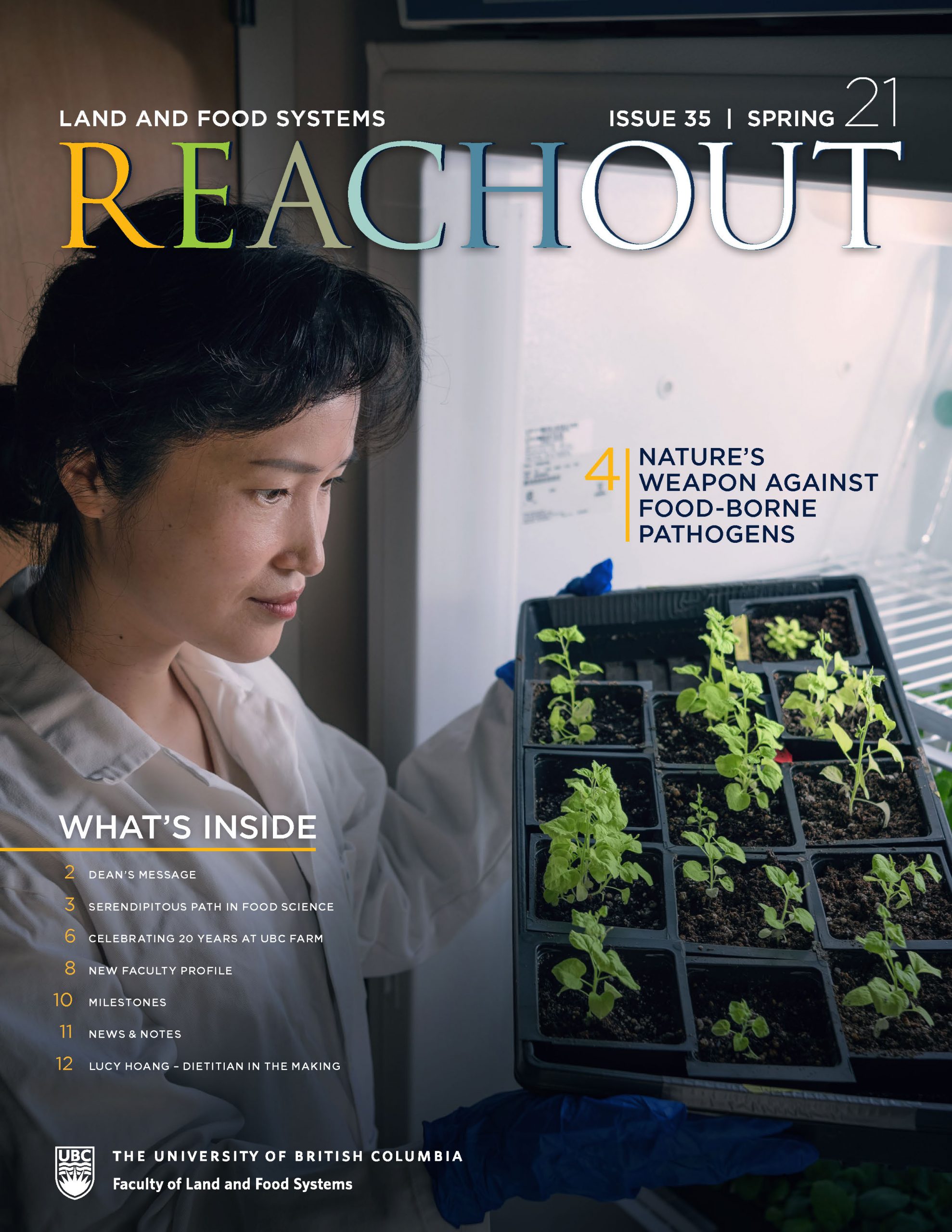Serendipitous Path in Food Science
PhD Candidate Lennie Cheung has already ventured down some interesting pathways in her food science career.
After obtaining her MSc in Food Science, Cheung became the first foreign female researcher in Japan’s second largest natural gas provider. While working in Osaka over a three-year period, Cheung set up a food science lab, performed research in heat-induced changes to bioactive compounds in food staples such as fish and vegetables, and networked with industry and governmental partners. Her findings were published in international food science journals and featured in national newspapers and on television.
“My immersion in Japanese work culture combined with the opportunity to work in the food science, technology and innovation sector was an incredibly rich experience,” Cheung said. But when the company offered her a permanent position, she declined and decided to return to Vancouver to reunite with her family.
She then ventured into administration. Cheung became manager of Graduate Pathways to Success, a program run by UBC’s Faculty of Graduate and Postdoctoral Studies. She oversaw weekly professional development workshops, evaluated participant feedback, organized Three Minute Thesis competitions and trained student volunteers. After a year and a half, she was ready for the next challenge: her doctoral degree.
“I am thankful for my time at Graduate Pathways to Success,” said Cheung. “The skill set I developed has been invaluable in my current LFS roles as one of two LFS TA Training Coordinators and as Academic Events Coordinator for the LFS Graduate Student Council. I’ve held both roles since 2019.”
Supervised by Dean Rickey Yada, Cheung is halfway through her PhD program. Her research aims to help reduce potato crop losses by better understanding disease-causing pathogens. An antimicrobial protein, called the plant specific insert (PSI), is part of the potato’s natural defence system.
“My research seeks to identify specific amino acids in the PSI sequence that help determine antimicrobial activity,” she said. “By comparing the structural characteristics, antimicrobial activity, and atomic movements of the PSI with modified variants, we can gain insight that can help strengthen our understanding of how crops naturally protect themselves against diseases, and potentially aid in the development of new strategies to better protect crops.”
Cheung is excited by the prospect of professionally contributing to this body of knowledge and thrilled at the challenge of learning new subjects and technical skills for her research. Her collaborators include Canadian experts in crop pathology, Polish biochemists and food analysts, and computational biologists and molecular engineers in China.
“Considering the serendipitous path I have traveled thus far, it is hard to see clearly where I will be in the future,” she said. “I hope to stay in academia as I have a great interest in fostering the growth of future decision-makers for the food sector. My passion has always been food science, and I wish to continue contributing to this field both with research and knowledge translation.”

